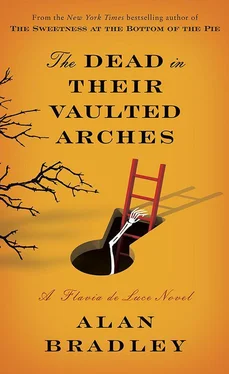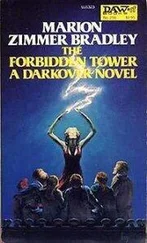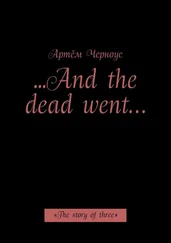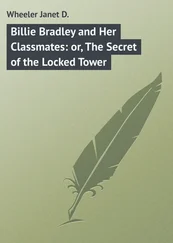It had been more than ten years since Harriet had disappeared, killed, we were told, in a climbing accident in Tibet: ten long, hard years, nearly half of which Father had spent in a Japanese prisoner-of-war camp. He had made his way home at last, only to find himself wifeless, penniless, and in grave danger of losing Buckshaw.
The estate had belonged to Harriet, who had inherited it from Uncle Tar, but because she had died without leaving a will, “the Forces of Darkness” (as Father had once referred to the gray men of His Majesty’s Board of Inland Revenue Department) had been hounding him as if, rather than a returning war hero, he were an escapee from Broadmoor.
And now Buckshaw was crumbling. Ten years of neglect, sadness, and shortage of funds had taken its toll. The family silver had been sent up to London for auction, budgets had been trimmed and belts tightened. But it was no use, and at Easter, our home had finally been put up for sale.
Father had, for ages, been warning us that we might have to leave Buckshaw at a moment’s notice.
And then, just days ago, having received a mysterious telephone message, he had at last summoned the three of us—Feely, Daffy, and me—to the drawing room.
He had looked slowly from one of us to the other before breaking the news.
“Your mother,” he said at last, “has been found.”
More than that: She was coming home.
FOUR
I REALIZED THAT, EVER since Father’s shocking announcement, I had been shutting myself off from reality: shoving the facts into some kit-bag corner of my mind and pulling tight the drawstring, in much the same way as you would try to trap a tiger in a sack.
Although it is shameful to admit, I knew that I had been trying to hang on to the past, attempting to awaken every morning to my old world: a world in which Harriet was still comfortably missing, a world in which, at least, I knew where I stood.
I was grasping at every chance to avoid change in the same way a drowning man tries to grab at his own rope of bubbles.
Not that I didn’t want Harriet home: I did. Of course I did.
But what would it do to my life?
The finding of the film had been a godsend. Viewing it, I thought, might provide a new window into the past: a window that would help me see more clearly into the future.
This was one of those troublesome thoughts with which I had recently begun to be plagued: new, raw, and still not entirely to be trusted. It was like thinking, sometimes, with someone else’s brain. It had something to do with being almost twelve, and I wasn’t sure I approved of it entirely.
I darkened my bedroom by covering the windows with quilts, fastening them to the frames with drawing pins round the edges. Buckshaw’s shabby and threadbare draperies were not nearly enough to keep out the sunlight.
In the laboratory, I had given the film a sharp flick with my fingernail. A hard, satisfying tick indicated that the same sunlight had dried it completely. I had wound it back onto its spool and brought it to my bedroom.
I threaded the film into the projector, which I had set up on my washstand, and pointed the projector into the fireplace. The walls of my bedroom were covered with such vile Victorian wallpaper—red clots on bilious blue—that there was no blank surface upon which to project the developed ciné film.
Fortunately, Mr. Mitchell, who was an expert in such things, had once told me, during a Film Night at the parish hall, that a white projection screen is not really required.
“Everyone supposes it is,” he had told me, “but only because they’ve never seen a black one.”
He went on to explain that a projector will provide those shades which are missing from a screen: that in fact, while watching the latest Ealing comedy in the cinema, those parts of the screen which appeared to our eyes to be black were actually white.
“Aye, white—but unilluminated,” he’d said.
Well, that made sense, and it seemed logical to me that the vast flat brickwork at the back of the fireplace, blackened by eons of soot, would provide the perfect surface.
And I was right!
As I switched on the projector and twisted the lens to bring it into sharp focus, the image on the fireplace bricks was formed of luxurious, velvety blacks.
Here was a view of Buckshaw, as seen from the Mulford Gates, moving now along the avenue of arched chestnuts towards the house. Next, a closer view: Harriet’s Rolls-Royce Phantom II, parked on the sweep of gravel near the front door.
Then came a shot of Harriet seated in the cockpit of Blithe Spirit . I recognized several of the statues in the background as those which now, more than a decade later, lay strewn in ruins among the overgrown hedges of the Visto. Harriet grinned at the camera and, seizing the sides of the cockpit in both hands, boosted herself up and swung her feet out onto the aircraft’s lower wing.
Harriet! My mother. Moving and breathing—as if she were still alive! And even more beautiful than I could have imagined. She seemed to glow from within, illuminating the world and all that was in it with the radiance of her smile.
With her short, tousled bobbed hair, she reminded me of one of those celebrated female aviators in the old newsreels, but without the sense of doom that overhung so many of them.
She waved, and the camera moved away to focus upon two little girls who waved madly back, holding their hands up as if to shield their eyes from the sun.
Feely and Daffy—aged about seven and two respectively.
As Harriet lowered herself carefully down from the wing, I saw for the first time her protruding belly. Although the bump was partially hidden by her flying gear, it was easy enough to see that she was pregnant.
That bump in her bloomers was me!
How peculiar it was to be present in the scene, and yet not present, like the assistant in a conjuring show.
What was I feeling? Embarrassment? Pride? Happiness?
It was none of these things. It was the bittersweet fact that while Feely and Daffy were sharing that long-ago sunshine with Harriet, I was not.
Now a close-up of Father approaching as if ambling out from the house. He glances up shyly and fiddles with something in his jacket pocket, then smiles at the camera. This scene was apparently filmed by Harriet.
A quick change of scene, and as, in the background, Feely and Daffy dabble like ducks at the edge of the ornamental lake, Father and Harriet, filmed by someone else, picnic on a blanket in front of the Folly. This was the scene I had examined in the laboratory.
She smiles at him, and he at her. He turns away to remove something from a wicker hamper, and in that instant, she becomes dead serious, turns to the camera, and mouths a couple of words, miming them in an exaggerated manner, as if giving instructions to someone through a windowpane.
I was caught off guard. What had Harriet said?
Normally, I’m a first-rate lip-reader. It is a skill I taught myself, first by sitting at the breakfast and dinner tables with my fingers stuffed into my ears, and later using the same technique at the cinema. I had sat at Bishop’s Lacey’s single bus stop with wads of cotton in both ears (“Dr. Darby says it’s a very bad infection, Mrs. Bellfield”), eavesdropping on early-morning shoppers as they headed for the market in Malden Fenwick.
Unless I was greatly mistaken, the words on Harriet’s lips had been “pheasant sandwiches.”
Pheasant sandwiches?
I stopped the projector, pushed the reverse lever, and backed the film up, then viewed the scene again. The Folly and the blanket. Harriet and Father.
She speaks the words again.
“Pheasant sandwiches.”
She articulates the words so clearly I can almost hear the sound of her voice.
Читать дальше












